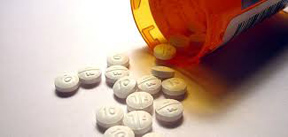 WASHINGTON: Young people who abuse ‘smart drugs’ to boost their attention span, memory and capacity to stay awake may risk long-term impairments to their brain function, a new research has warned.
WASHINGTON: Young people who abuse ‘smart drugs’ to boost their attention span, memory and capacity to stay awake may risk long-term impairments to their brain function, a new research has warned.
Kimberly Urban at the University of Delaware and Wen-Jun Gao at Drexel University College of Medicine found that any short-term boost in mental performance due to smart drugs may come at a heavy cost: a long-term decrease in brain plasticity, necessary for task switching, planning ahead, and adaptive flexibility in behavior.
Methylphenidate is a popular smart drug and is often sold on the black market. It was originally developed as a prescription-only drug (sold as Ritalin and Concerta) to treat Attention deficit hyperactivity disorder (ADHD), and works by increasing the level of neurotransmitter in the nervous system.
Trials on rats have shown that young, developing brains are particularly sensitive to methylphenidate: even low dosages early in life can reduce nerve activity, working memory, and the ability to quickly switch between tasks and behaviors.
Another popular smart drug is modafinil, sold under the name Proviigil against narcolepsy and other sleep disorders.
Believed to work by raising levels of dopamine in between synapses of brain nerve cells, it can boost memory as well as the ability to work with numbers and do other mental tasks.
But research indicates that modafinil could have similar long-term undesired effects as methylphenidate on the developing brain, the study authors said.
Not yet widely used are ampakines, an emerging class of drugs currently studied by the US military with the aim of increasing alertness in soldiers.
Ampakines bind to so-called AMPA receptor molecules in the nervous system and boost the response of nerve cells and strengthen connections between them. -PTI






